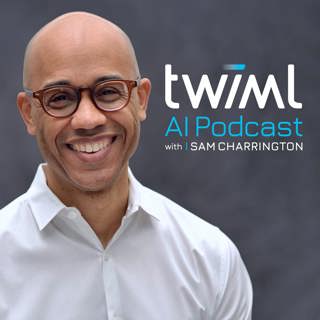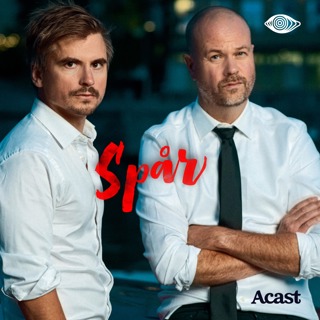
Robotics at OpenAI with Jonas Schneider - TWiML Talk #76
The show is part of a series that I’m really excited about, in part because I’ve been working to bring them to you for quite a while now. The focus of the series is a sampling of the interesting work being done over at OpenAI, the independent AI research lab founded by Elon Musk, Sam Altman and others. In this show I’m joined by Jonas Schneider, Robotics Technical Team Lead at OpenAI. While in San Francisco a few months ago, I spent some time with Jonas at the OpenAI office, during which we covered a lot of interesting ground around OpenAI’s work in robotics. We discuss OpenAI Gym, which was the first project he worked on at OpenAI, as well as how they approach setting up the infrastructure for their experimental work, including how they’ve set up a Robots-as-a-Service environment for their researchers and how they use the open source Kubernetes project to manage their compute environment. Check it out and let us know what you think! To find the notes for this show, visit twimlai.com/talk/76 For more info on this series, visit twimlai.com/openai
1 Dec 201745min

AI Robustness and Safety with Dario Amodei - TWiML Talk #75
The show is part of a series that I’m really excited about, in part because I’ve been working to bring them to you for quite a while now. The focus of the series is a sampling of the interesting work being done over at OpenAI, the independent AI research lab founded by Elon Musk, Sam Altman and others. In this episode i'm joined by Dario Amodei, Team Lead for Safety Research at OpenAI. While in San Francisco a few months ago, I spent some time at the OpenAI office, during which I sat down with Dario to chat about the work happening at OpenAI around AI safety. Dario and I dive into the two areas of AI safety that he and his team are focused on--robustness and alignment. We also touch on his research with the Google DeepMind team, the OpenAI Universe tool, and how human interactions can be incorporated into reinforcement learning models. This was a great conversation, and along with the other shows in this series, this is a nerd alert show! To find the notes for this show, visit twimlai.com/talk/75 For more info on this series, visit twimlai.com/openai
30 Nov 201736min

Towards Artificial General Intelligence with Greg Brockman - TWiML Talk #74
The show is part of a series that I’m really excited about, in part because I’ve been working to bring them to you for quite a while now. The focus of the series is a sampling of the interesting work being done over at OpenAI, the independent AI research lab founded by Elon Musk, Sam Altman and others. In this episode, I’m joined by Greg Brockman, OpenAI Co-Founder and CTO. Greg and I touch on a bunch of topics in the show. We start with the founding and goals of OpenAI, before diving into a discussion on Artificial General Intelligence, what it means to achieve it, and how we going about doing so safely and without bias. We also touch on how to massively scale neural networks and their training training and the evolution of computational frameworks for AI. This conversation is not only informative and nerd alert worthy, but we cover some very important topics, so please take it all in, enjoy, and send along your feedback! To find the notes for this show, visit twimlai.com/talk/74 For more info on this series, visit twimlai.com/openai
28 Nov 201755min

Explaining Black Box Predictions with Sam Ritchie - TWiML Talk #73
This week, we’ll be featuring a series of shows recorded from Strange Loop, a great developer-focused conference that takes place every year right in my backyard! The conference is a multi-disciplinary melting pot of developers and thinkers across a variety of fields, and we’re happy to be able to bring a bit of it to those of you who couldn’t make it in person! In this episode, I speak with Sam Ritchie, a software engineer at Stripe. I caught up with Sam RIGHT after his talk at the conference, where he covered his team’s work on explaining black box predictions. In our conversation, we discuss how Stripe uses black box predictions for fraud detection, and he gives a few use case scenarios. We discuss Stripe’s approach for explaining those predictions as well as other approaches, and briefly mention Carlos Guestrin’s work on LIME paper, which he and I discuss in TWiML Talk #7. The notes for this show can be found at twimlai.com/talk/73 For more series info, visit twimlai.com/STLoop
25 Nov 201738min

Experimental Creative Writing with the Vectorized Word - Allison Parish - TWIML Talk #72
This week, we’ll be featuring a series of shows recorded from Strange Loop, a great developer-focused conference that takes place every year right in my backyard! The conference is a multi-disciplinary melting pot of developers and thinkers across a variety of fields, and we’re happy to be able to bring a bit of it to those of you who couldn’t make it in person! In this episode, I speak with Allison Parrish, Poet and Professor at NYU in the Interactive Telecommunications dept. Allison’s work centers around generated poetry, via artificial intelligence and machine learning. She joins me prior to her conference talk on “Experimental Creative Writing with the Vectorized Word”. In our time together, we discuss some of her research into computational poetry generation, actually performing AI-produced poetry, and some of the methods and processes she uses for generating her work. Allison’s work centers around generated poetry, via artificial intelligence and machine learning. She joins me prior to her conference talk on “Experimental Creative Writing with the Vectorized Word”. In our time together, we discuss some of her research into computational poetry generation, actually performing AI-produced poetry, and some of the methods and processes she uses for generating her work. The notes for this show can be found at twimlai.com/talk/72 For more series info, visit twimlai.com/STLoop
24 Nov 201728min

The Biological Path Towards Strong AI - Matthew Taylor - TWiML Talk #71
This week, we’ll be featuring a series of shows recorded from Strange Loop, a great developer-focused conference that takes place every year right in my backyard! The conference is a multi-disciplinary melting pot of developers and thinkers across a variety of fields, and we’re happy to be able to bring a bit of it to those of you who couldn’t make it in person! In this episode, I speak with Matthew Taylor, Open Source Manager at Numenta. You might remember hearing a bit about Numenta from an interview I did with Francisco Weber of Cortical.io, for TWiML Talk #10, a show which remains the most popular show on the podcast. Numenta is basically trying to reverse-engineer the neocortex, and use what they learn to develop a neocortical theory for biological and machine intelligence called Hierarchical Temporal Memory. Matt joined me at the conference to discuss his talk “The Biological Path Towards Strong AI”. In our conversation, we discuss the basics of HTM, it’s biological inspiration, and how it differs from traditional neural network models including deep learning. This is a Nerd Alert show, and after you listen I would encourage you to check out the conversation with Francisco which we’ll link to in the show notes. The notes for this show can be found at twimlai.com/talk/71 For series information, visit twimlai.com/stloop
22 Nov 201737min

Pytorch: Fast Differentiable Dynamic Graphs in Python with Soumith Chintala - TWiML Talk #70
This week, we’ll be featuring a series of shows recorded from Strange Loop, a great developer-focused conference that takes place every year right in my backyard! The conference is a multi-disciplinary melting pot of developers and thinkers across a variety of fields, and we’re happy to be able to bring a bit of it to those of you who couldn’t make it in person! In this show I speak with Soumith Chintala, a Research Engineer in the Facebook AI Research Lab (FAIR). Soumith joined me at Strange Loop before his talk on Pytorch, the deep learning framework. In this talk we discuss the market evolution of deep learning frameworks and tools, different approaches to programming deep learning frameworks, Facebook’s motivation for investing in Pytorch, and much more. This was a fun interview, I hope you enjoy! The notes for this show can be found at twimlai.com/talk/70 For series information, visit twimlai.com/stloop
21 Nov 201742min

Accessible Machine Learning for the Enterprise Developer with Ryan Sevey & Jason Montgomery
This week, we’ll be featuring a series of shows recorded from Strange Loop, a great developer-focused conference that takes place every year right in my backyard! The conference is a multi-disciplinary melting pot of developers and thinkers across a variety of fields, and we’re happy to be able to bring a bit of it to those of you who couldn’t make it in person! In this show you'll hear from Nexosis founders Ryan Sevey and Jason Montgomery. Ryan, Jason and I discuss how they got their start by applying ML to identify cheaters in video games, the application of ML for time-series data analysis, and of course the Nexosis Machine Learning API. Of course, if you like what you hear, they invite you to get your free Nexosis API key and discover what they can bring to your next project at nexosis.com/twiml. The notes for this show can be found at twimlai.com/talk/69 For series information, visit twimlai.com/stloop
20 Nov 201745min





















